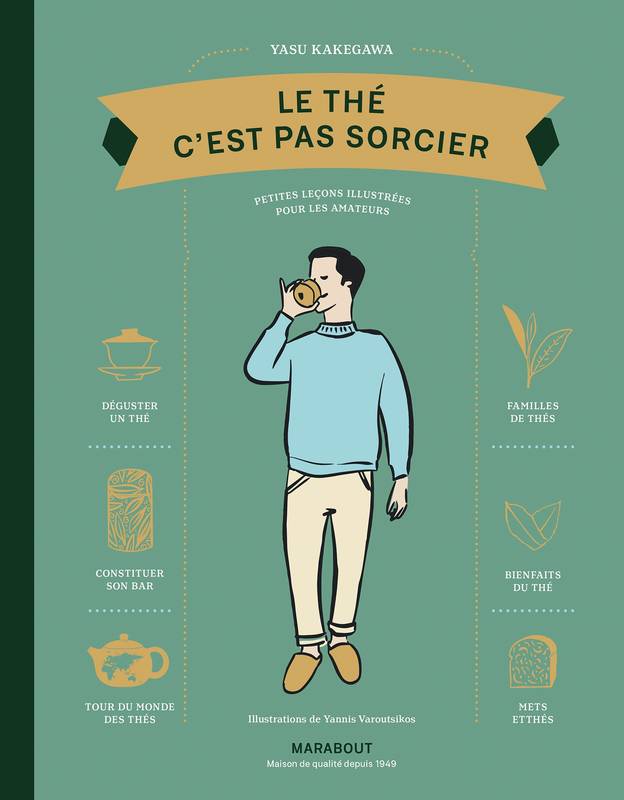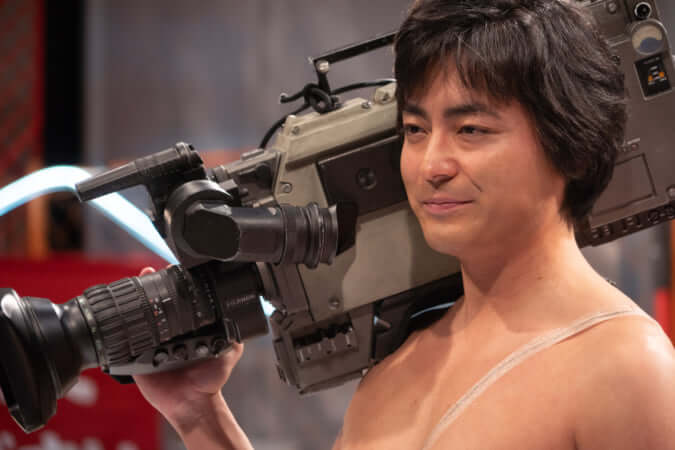Everything There Is to Know About Tea
In ‘Tea: It's Not Rocket Science’, Yasu Kakegawa offers tips and analysis to deepen readers' knowledge of this hugely popular drink in Japan.

© Éditions Marabout
Yasu Kakegawa is a tea expert and discoverer of rare crops from all four corners of the world, but also a lecturer and tea sommelier and consultant. In his book Le thé c’est pas sorcier (‘Tea: It’s Not Rocket Science’), he has compiled extensive information that is aimed at both novices and experts alike. Different types of tea, producing countries, the history and culture of tea, but also advice on how to taste tea: his book is a little bible.
While Le thé c’est pas sorcier does not focus solely on Japan, the country occupies a prominent position in the book. The reader discovers that the word tea first appeared in Japanese texts in 815: Eichu, a Buddhist monk, is said to have served tea to Emperor Saga in Boushaku-ji Temple. Later, in the 15th century, production of the famous matcha tea began in Japan thanks to the shady growing conditions. The reader also learns about the different types of tea found in Japan, from the classic sencha green tea to matcha, which are used for the tea ceremony, among others, via genmaicha, a tea mixed with grains of roasted popped brown rice.
Tea and food pairings
Complemented by illustrations by Yannis Varoutsikos, Le thé c’est pas sorcier is split into several chapters including culture, production around the world and benefits.
Thus, readers will discover the producing countries, the steps involved in the manufacturing process, how to differentiate the many different tea families, how to prepare and taste it but also what dishes to drink it with, as Yasu Kakegawa has also included some tea and food pairings.
Le thé c’est pas sorcier (‘Tea: It’s Not Rocket Science’) (2021), a book by Yasu Kakegawa published by Marabout (not currently available in English).
TRENDING
-
Ishiuchi Miyako, A Singular Perspective on Women
Recipient of the 2024 Women in Motion Award, the photographer creates intimate portraits of women through the objects they left behind.

-
Recipe for Ichiraku Ramen from ‘Naruto’ by Danielle Baghernejad
Taken from the popular manga with the character of the same name who loves ramen, this dish is named after the hero's favourite restaurant.

-
Namio Harukawa, Master of Japanese SM Art
'Garden of Domina' offers a dive into the world of an icon of ‘oshiri’, whose work has now reached a global audience.

-
The Tattoos that Marked the Criminals of the Edo Period
Traditional tattoos were strong signifiers; murderers had head tattoos, while theft might result in an arm tattoo.

-
The Emperor of Japanese Porn is Now the Star of a Netflix Series
Deliciously funny, The Naked Director especially succeeds in reviving the atmosphere that was so characteristic of 1980s Japan.





